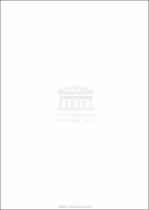The fundamental determinants of long run growth in the Cameroonian economy
Abstract
Nearly half a century after independence, the Cameroon economy has experienced little or no growth in per capita incomes in spite of the enormous natural and human potentials of the country and in spite of the huge packages of aid and subsequent debt relief received from the international donor community, suggesting a more profound cause to the development problems facing the country. Under the current WTO rules-based system of multi-lateral trade management, Cameroon, like other poor countries, is left with limited scope for effective implementation of industrial and trade policies that could bail her out of her present predicament. Against this backdrop, this study seeks to explore the fundamental determinants of sustainable growth within the context of the Cameroonian economy. While acknowledging the role of openness to international markets in promoting growth, its effects could only be maximised with the attainment of certain threshold conditions such as the availability of basic skills, provision of vital infrastructure services and public goods, and good governance. In a nutshell, for development to happen, the country needs not only well functioning markets, but also good governments that do not steal the fruits of workers' labour. Drawing on the endogenous growth models, the study suggests that incentives for investment in knowledge capital, for infrastructure provision and for good governance could bail the country out of its low level traps, setting it on the path of sustainable growth in an evermore globalising world economy.

